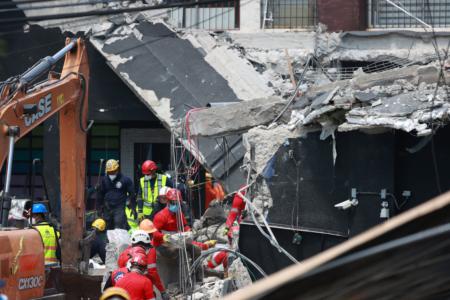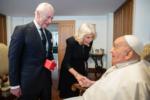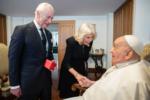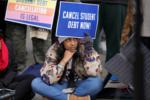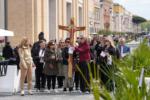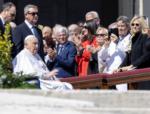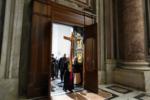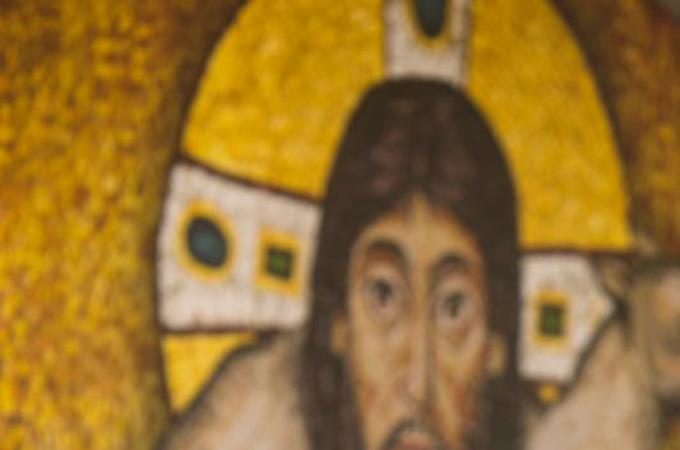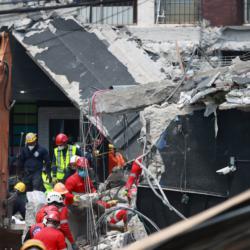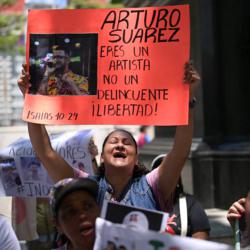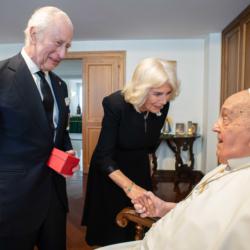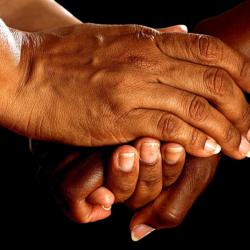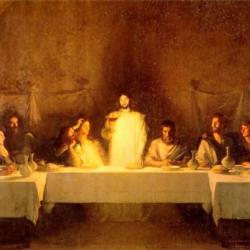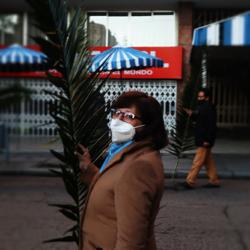Boston cardinal apologizes for process that kept letter from reaching him
BOSTON (CNS) -- Cardinal Sean P. O'Malley said Aug. 20 that he takes full responsibility for office procedures that resulted in him never being notified about a June 2015 letter sent to his attention regarding "sexual abuse/harassment/intimidation" allegations concerning Archbishop Theodore E. McCarrick.
It was sent to the Boston Archdiocese's Pastoral Center and addressed to Cardinal O'Malley as president of the Pontifical Commission for the Protection of Minors.
The letter writer was Father Boniface Ramsey, pastor of St. Joseph's Church Yorkville in New York City.
In it, he described conversations with the rector of a seminary in New Jersey about trips Archbishop McCarrick, then head of the Archdiocese of Newark, New Jersey, would take with seminarians to a beach house. Father Ramsey also asked that if the matter did not fall under his purview, it be forwarded it to the "proper agency in the Vatican."
Cardinal O'Malley said his "first knowledge" of Father Ramsey's letter occurred when media reports of the letter were published this July.
Now knowing what the letter detailed about the archbishop, the cardinal said it is "so difficult" to understand how, when doubts were raised years ago about his "faithfulness to his promise of celibacy" as priest, Archbishop McCarrick's name was ever considered for a bishop's appointment.
"I apologize to Father Ramsey for not having responded to him in an appropriate way and appreciate the effort that he undertook in seeking to bring his concerns about Archbishop McCarrick's behavior to my attention," he said. "I also apologize to anyone whose concerns were reflected in Father Ramsey's letter."
Cardinal O'Malley explained that his priest-secretary, Father Robert Kickham, received the 2015 letter on his behalf, "as he does much of the correspondence that comes to my office at the Pastoral Center."
"Father Kickham's response to Father Ramsey noted that individual cases such as he proposed for review fell outside the mandate of the commission," the cardinal said. "Consequently, he did not bring the letter to my attention.
"In retrospect it is now clear to Father Kickham and to me that I should have seen that letter precisely because it made assertions about the behavior of an archbishop in the church," he continued. "I take responsibility for the procedures followed in my office and I also am prepared to modify those procedures in light of this experience."
Cardinal O'Malley said that allegations regarding Archbishop McCarrick's "sexual crimes" were "unknown to me until the recent media reports."
"I understand not everyone will accept this answer given the way the church has eroded the trust of our people," he said. "My hope is that we can repair the trust and faith of all Catholics and the wider community by virtue of our actions and accountability in how we respond to this crisis."
He added, "What makes all this so difficult to understand is that it has been my experience that when a priest is being vetted to be named a bishop, any doubt or question concerning his faithfulness to his promise of celibacy would result in removing his name from consideration to be named bishop."
In early August Father Ramsey provided a copy of his letter to Catholic News Service. In it he said it took him "years to write and send" the letter. But it was the second time he had attempted to tell church officials in writing.
During the time period he mentions in the letter, 1986 to 1996, he says he was teaching at Immaculate Conception Seminary at Seton Hall University in New Jersey. He writes of the accounts he'd heard of Archbishop McCarrick's repeated trips to a New Jersey beach house where, after too many seminarians were invited for too few beds, "the extra seminarian was then told that he could share the archbishop's bed."
"Some of these stories were not presented to me as mere rumors but were told (to) me by persons directly involved," he wrote.
In his statement Cardinal O'Malley said the U.S. Conference of Catholic Bishops "is anxious to understand how Theodore McCarrick could have been named bishop, archbishop and cardinal. We must be certain that this never happens again. That is why the bishops' conference is requesting an investigation by the Holy See with the participation of lay people.
He quoted Pope Francis' statement released Aug. 20: "Let us beg forgiveness for our own sins and the sins of others. An awareness of sins helps us to acknowledge the errors, the crimes and the wounds caused in the past and allows us, in the present, to be more open and committed along a journey of renewed conversion."
